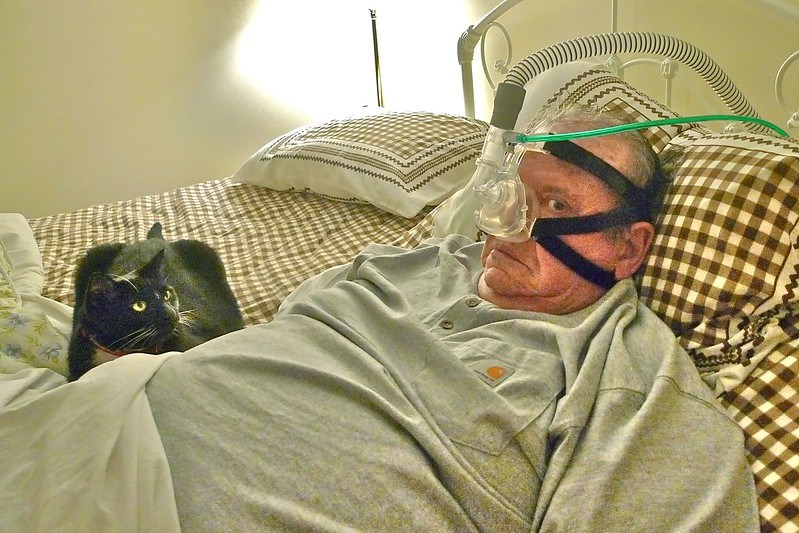Dutch electronics giant Philips, based in Eindhoven, has issued a recall notice for seven types of breathing devices used by patients to help them sleep better.
The devices are not respirators for emergency use. They belong to a category known as CPAPs – continuous positive airway pressure machines – used to combat sleep apnoea. That being a condition where the patient stops breathing during sleep, sometimes hundreds of times in the night, causing micro-awakenings of which they are not aware, but which cause fatigue and stress, and the conditions stress can lead to.
The machines push air into the nose and mouth, maintaining a constant pressure and stopping the folds at the back of the throat from falling and obstructing the airway.
The problem, Philips said in its recall notice, is twofold, but both concern the polyurethane foam used to cut noise levels from the machines. The PE-PUR foam can degrade into particles that may be swallowed or inhaled by the user.
Alternatively, the foam may give off a gas which can also be inhaled.
“These issues can result in serious injury which can be life-threatening, cause permanent impairment, and/or require medical intervention to preclude permanent impairment,” the company warns.
The devices involved in the recall are the Trilogy 100, Trilogy 200, Garbin Plus, Aeris, LifeVent, BiPAP V30, and BiPAP A30/A40 Series.
Philips recommends that users first contact their own doctor. In some cases a replacement may not be readily available, and the suspension of treatment might be dangerous. If the machine cannot be replaced, use an anti-bacterial filter in the mask.
Everyone, however, should register on the recall website which offers details on how to locate your device’s serial number.
The above action should be taken regardless of whether the user can spot any PE-PUR foam particles. And in any case the production of gas will not be detected when the machine is not in use, and even then only with the correct equipment.

